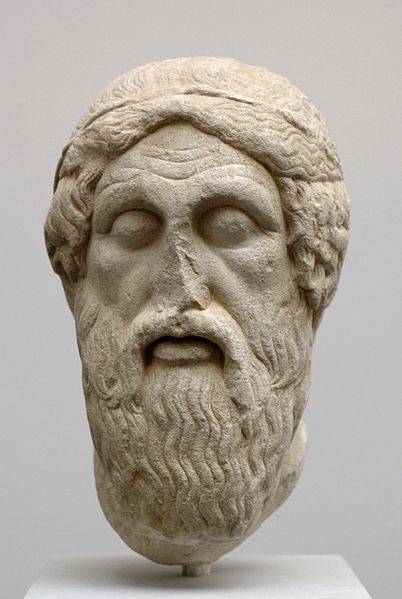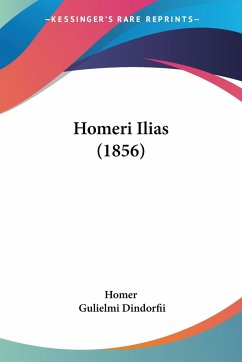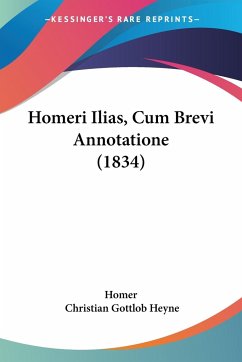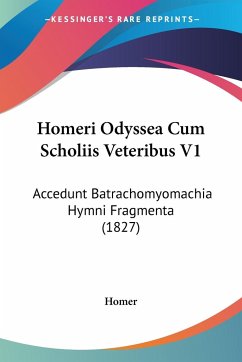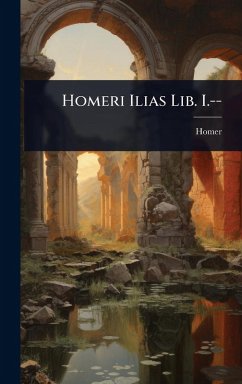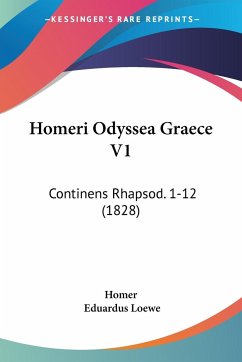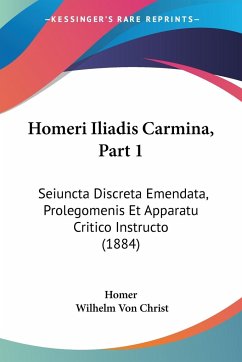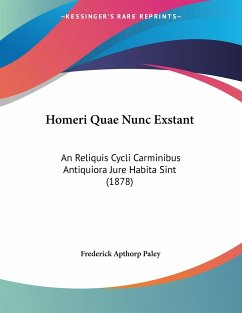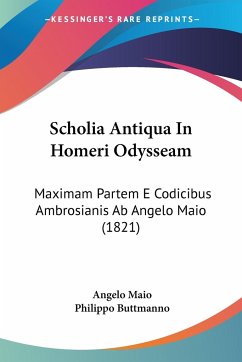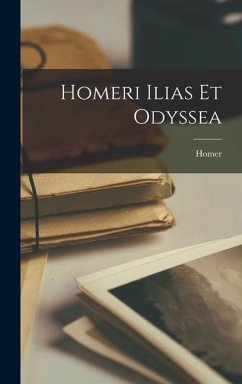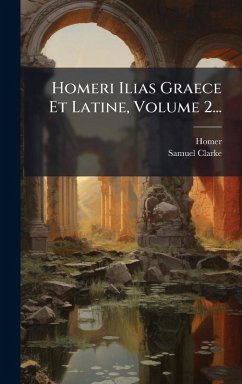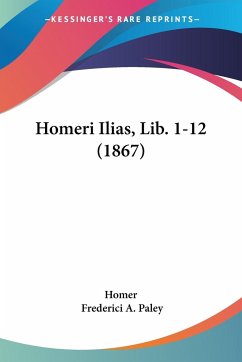
Homeri Ilias, Lib. 1-12 (1867)
Versandkostenfrei!
Versandfertig in 1-2 Wochen
26,99 €
inkl. MwSt.

PAYBACK Punkte
13 °P sammeln!
Homeri Ilias est carmen heroicum Graecorum, quod de bello Troiano narrat. Libri duodecim, quos huius operis pars constituit, sunt pleni pugnis, duellis, et consiliis deorum et hominum. In libro primo, Achilleus iratus est cum Agamemnone, regi Graecorum, et recusat pugnam, quae tamen postea fit. In libro secundo, deae Athenae et Herae, et deus Poseidon, qui favent Graecis, pugnant cum deo Apolline et dea Aphrodite, qui favent Troianis. In libro tertio, Pallas Athena et Pandarus, Troianorum princeps, inducunt bellum. In libro quarto, Menelaus et Paris, Troianorum princeps, duellum committunt, se...
Homeri Ilias est carmen heroicum Graecorum, quod de bello Troiano narrat. Libri duodecim, quos huius operis pars constituit, sunt pleni pugnis, duellis, et consiliis deorum et hominum. In libro primo, Achilleus iratus est cum Agamemnone, regi Graecorum, et recusat pugnam, quae tamen postea fit. In libro secundo, deae Athenae et Herae, et deus Poseidon, qui favent Graecis, pugnant cum deo Apolline et dea Aphrodite, qui favent Troianis. In libro tertio, Pallas Athena et Pandarus, Troianorum princeps, inducunt bellum. In libro quarto, Menelaus et Paris, Troianorum princeps, duellum committunt, sed Venus Paris subducit. In libro quinto, Diomedes, Graecorum princeps, pugnat cum deis et Troianis, et vulnerat deum Ares. In libro sexto, Hector, Troianorum princeps, ad urbem revertitur, sed postea ad pugnam redit. In libro septimo, Hector et Ajax, Graecorum princeps, duellum committunt, sed sine victore. In libro octavo, deus Zeus inducit Troianorum victoriam. In libro nono, deus Achilles ad pugnam redit et interficit Hector. In libro decimo, deus Apolline et dea Artemide pugnant cum Graecis. In libro undecimo, Ajax et Odysseus, Graecorum principes, pugnant cum Troianis. In libro duodecimo, Troiani incendunt naves Graecorum. Hoc opus est una ex antiquissimis et celeberrimis poesis Graecae, et multos auctores et poetas postea inspiravit.This scarce antiquarian book is a facsimile reprint of the old original and may contain some imperfections such as library marks and notations. Because we believe this work is culturally important, we have made it available as part of our commitment for protecting, preserving, and promoting the world's literature in affordable, high quality, modern editions, that are true to their original work.



